‘Grandad started to forget things’ - Josie Cooper on her Alzheimer’s fundraising walk
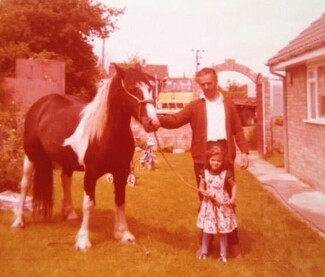
Josie Cooper, 50, is taking part in a sponsored walk, in memory of her Grandad Joseph Draper, to raise money for an Alzheimer’s charity.
The Memory Walk for the Alzheimer’s Society – who support people affected by this debilitating illness - will take place in Windsor on 10th September and Josephine, a Romany Gypsy who lives near Chelmsford, will be one of many taking part.
Alzheimer's is a type of gradually progressive brain disorder that causes problems with memory, thinking and behaviour. Most people who have Alzheimer's will then go on to develop Dementia.
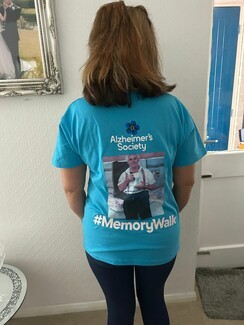
“It’s affected so many people in my family,” says Josephine. “My Grandad Joseph Draper, who died 15 years ago, had it and so have a lot of his close relatives.
Josephine explains that her grandad’s symptoms of Alzheimer’s developed gradually, but then his family came under increasing pressure to cope as his condition got worse.
“My Grandad, who was from the Bury St Edmund’s area, was a very active man, he kept and bred horses and went to all of the horse fairs” says Josephine. “But he started to forget things and then one day he just said; ‘I don’t feel right’.
“It got worse and worse and eventually, before he died, he couldn’t speak, he couldn’t clean or feed himself, he forgot who everyone was – even his wife and children, and he had to be watched and taken care of all day and night. It took away his dignity and it was like he had gone back to being like a little baby.”
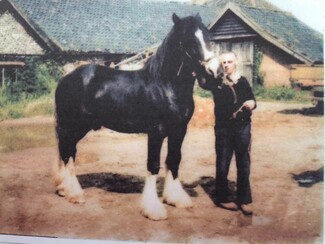
Josephine understands why many families would not be able to cope with caring for a relative with Alzheimer’s, but her Granny (now 93) was adamant that her husband Joseph was not going to be put in a home or a hospice.
“My Mum and her two sisters helped my Granny to look after my Grandad, but it was a hell of a lot to cope with, on top of everything else, and it nearly broke us as a family,” says Josephine. “Someone had to be with him every minute of the day.”
“You should never argue with someone with Alzheimer’s, just agree and try to calm them. Sometimes Grandad would just decide that he wanted to go and see his mum and dad, who were no longer alive, so my mum would just drive him around in her car ‘to go and see them’ until Grandad eventually forgot why he was in the car and where they were meant to be going, and then Mum would drive him back home.”
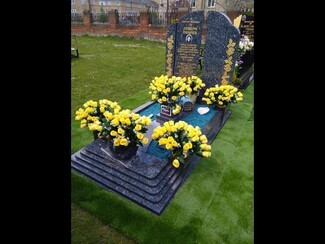
Josephine has already raised over £1,000 towards her sponsored walk, mostly from other Gypsies and Travellers.
Josephine’s fundraiser for her sponsored walk can be found by following this link: JOSEPHINE COOPER’S FUNDRAISER FOR THE ALZHEIMER’S SOCIETY
“We are a pretty generous lot,” says Josephine - about Gypsy and Traveller people. “We always like to help each other out and be charitable. When I am shopping I sometimes see elderly people and I can tell that they may have Alzheimer’s, so I always try to help them, ask them how they are or if they need to find something and I want to thank every single person – Traveller or not – who has donated to my fundraiser.”
“When I have finished it and the money raised has gone to the Azheimer’s Society, I am not going to stop there,” says Josephine. “I will always be there to support other families who have a relative with this terrible condition if I can.”
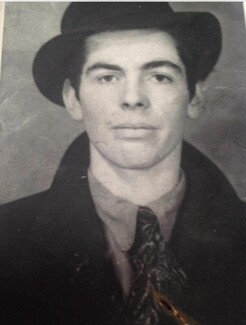
Mike Doherty/TT News
(Lead photograph: Joseph Draper with his Grandaughter Josephine Cooper at 3 years of age. All photographs courtesy of Josephine Cooper)
Alzheimer's
From the NHS website:
The symptoms of Alzheimer's disease progress slowly over several years. Sometimes these symptoms are confused with other conditions and may initially be put down to old age.
The rate at which the symptoms progress is different for each individual.
Anyone with Alzheimer's disease whose symptoms are rapidly getting worse should be seen by a doctor so these can be managed.
There may be reasons behind the worsening of symptoms that can be treated.
Stages of Alzheimer's disease
Generally, the symptoms of Alzheimer's disease are divided into 3 main stages.
Early symptoms
In the early stages, the main symptom of Alzheimer's disease is memory lapses.
For example, someone with early Alzheimer's disease may:
- forget about recent conversations or events
- misplace items
- forget the names of places and objects
- have trouble thinking of the right word
- ask questions repetitively
- show poor judgement or find it harder to make decisions
- become less flexible and more hesitant to try new things
There are often signs of mood changes, such as increasing anxiety or agitation, or periods of confusion.
Middle-stage symptoms
As Alzheimer's disease develops, memory problems will get worse.
Someone with the condition may find it increasingly difficult to remember the names of people they know and may struggle to recognise their family and friends.
Other symptoms may also develop, such as:
- increasing confusion and disorientation – for example, getting lost, or wandering and not knowing what time of day it is
- obsessive, repetitive or impulsive behaviour
- delusions (believing things that are untrue) or feeling paranoid and suspicious about carers or family members
- problems with speech or language (aphasia)
- disturbed sleep
- changes in mood, such as frequent mood swings, depression and feeling increasingly anxious, frustrated or agitated
- difficulty performing spatial tasks, such as judging distances
- seeing or hearing things that other people do not (hallucinations)
Some people also have some symptoms of vascular dementia.
By this stage, someone with Alzheimer's disease usually needs support to help them with everyday living.
For example, they may need help eating, washing, getting dressed and using the toilet.
Later symptoms
In the later stages of Alzheimer's disease, the symptoms become increasingly severe and can be distressing for the person with the condition, as well as their carers, friends and family.
Hallucinations and delusions may come and go over the course of the illness, but can get worse as the condition progresses.
Sometimes people with Alzheimer's disease can be violent, demanding and suspicious of those around them.
In the severe stages of Alzheimer's disease, people may need full-time care and assistance with eating, moving and personal care.
Read more about how Alzheimer's disease is treated.
When to see a GP
If you're worried about your memory or think you may have dementia, it's a good idea to see a GP.
If you're worried about someone else's memory problems, encourage them to make an appointment and perhaps suggest that you go along with them.
Memory problems are not just caused by dementia – they can also be caused by depression, stress, medicines or other health problems.
A GP can carry out some simple checks to try to find out what the cause may be, and they can refer you to a specialist for more tests if necessary.